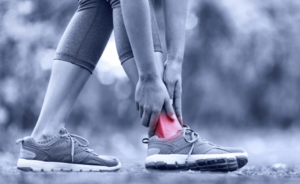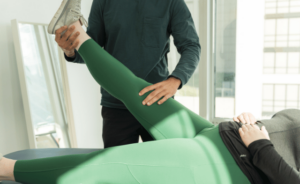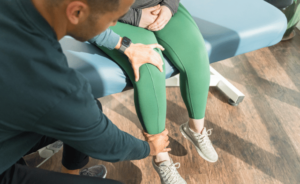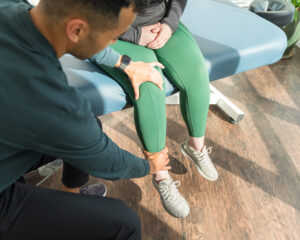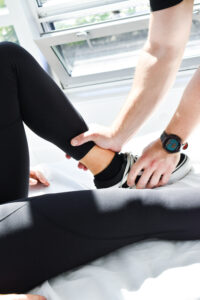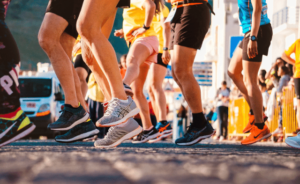What is Runner’s Knee?
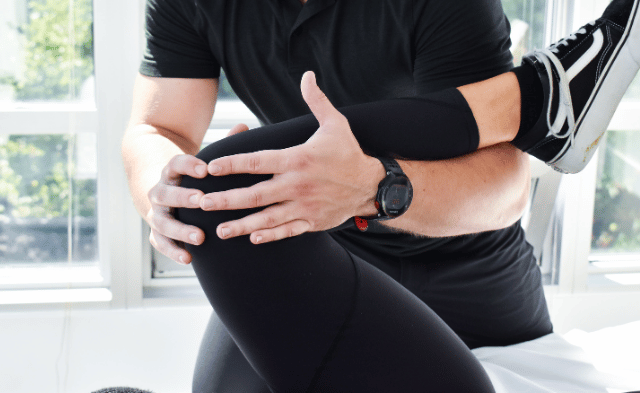
Runner’s Knee, or Patellofemoral Pain Syndrome (PFPS), is a condition that causes pain around or behind the kneecap. It’s often triggered by activities like running, climbing stairs, or even sitting for extended periods with bent knees. The pain can vary from mild to severe, and without proper treatment, it can interfere with your running routine.
Why Does Runner’s Knee Happen to Vancouver Runners?
There are several reasons why Runner’s Knee is common among Vancouver runners. The city’s diverse terrain—ranging from flat city streets to hilly trails—places varying stresses on the knees. Here are some of the main causes:
- Overuse: Vancouver runners, especially those training for long-distance events like the Vancouver Marathon, often experience repetitive stress on the knees, leading to cartilage irritation.
- Muscle Imbalances: Weak or tight muscles, particularly around the hips and thighs, can cause misalignment of the kneecap, contributing to Runner’s Knee.
- Biomechanical Issues: Poor running form, improper footwear, or foot issues (like flat feet) can increase the strain on your knees, making you more prone to injuries.
Terrain Variations: Vancouver’s unique terrain, from hilly runs in Pacific Spirit Park to the flat Seawall, can cause changes in running mechanics, increasing the likelihood of developing Runner’s Knee.
FAQs
1. Can I continue running if I have Runner’s Knee?
It’s best to consult a physiotherapist before continuing to run. They can assess your knee and create a treatment plan, which may include temporary rest or modifications to prevent worsening the condition.
2. Can physiotherapy help with Runner’s Knee?
Yes, physiotherapy is highly effective for treating Runner’s Knee. Through exercises, manual therapy, and biomechanics correction, a physiotherapist can help relieve knee pain, improve mobility, and prevent future knee injuries.
3. What are the symptoms of Runner’s Knee?
Common symptoms include pain around the kneecap, discomfort during activities like running or stair climbing, and knee pain after sitting for long periods with bent knees. If you experience these symptoms, consider booking a physiotherapy assessment.
4. How long does it take to recover from Runner’s Knee with physiotherapy?
Recovery time varies depending on the severity of the condition and the treatment approach. With consistent physiotherapy, most people experience improvement in 6-8 weeks, though this can differ for each individual.
5. Are there specific exercises to prevent Runner’s Knee?
Yes, strengthening exercises that target the hips, quadriceps, and glutes can help prevent Runner’s Knee. A physiotherapist can guide you through exercises tailored to your needs to avoid further injury.
Common Symptoms of Runner’s Knee
If you’re experiencing any of the following symptoms, you might be suffering from Runner’s Knee:
- Pain around the front of the knee, especially during or after running.
- Discomfort when climbing stairs or squatting.
- Knee pain after sitting for long periods, particularly with the knee bent.
- A feeling of weakness or instability in the knee.
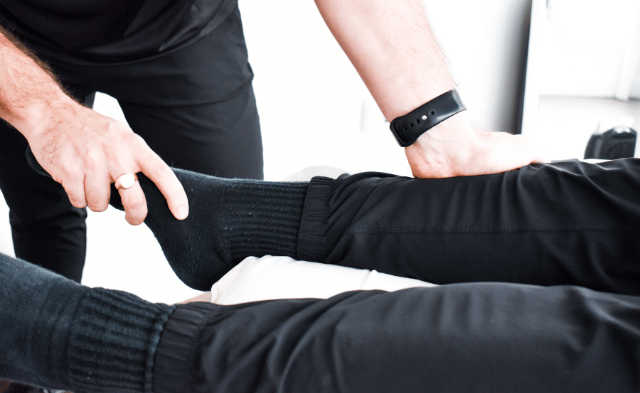
How Physiotherapy Can Help Vancouver Runners Recover from Runner’s Knee
At Vancouver Physiotherapy Hub, located in downtown Vancouver, we specialize in treating common running injuries, including Runner’s Knee. Physiotherapy is one of the most effective treatments for this condition. Here’s how we can help you recover and return to your regular running routine:
1. Accurate Diagnosis
Our expert physiotherapists in downtown Vancouver will assess your symptoms, running history, and biomechanics to identify the underlying cause of your knee pain. This ensures a personalized treatment plan tailored specifically to your needs.
2. Manual Therapy
Manual therapy, including soft tissue massage and joint mobilization, helps reduce pain and improve mobility in the affected knee. These techniques also address muscle imbalances and tightness in the surrounding muscles, such as the quadriceps and hamstrings.
3. Strengthening Exercises
One of the primary components of physiotherapy for Runner’s Knee is strengthening weak muscles. For example, strengthening your hip abductors, quadriceps, and glutes can help restore proper alignment of the kneecap and reduce stress on the joint.
4. Gait and Biomechanics Correction
Many runners suffer from Runner’s Knee due to poor biomechanics. Our team will analyze your running gait and provide recommendations to correct improper form, foot strike patterns, or stride length. Proper form can help prevent Runner’s Knee from reoccurring.
5. Footwear and Orthotic Advice
Wearing the wrong shoes for running can exacerbate knee pain. We’ll offer advice on selecting the right footwear for your running style and may recommend orthotics if necessary to improve foot and knee alignment.
6. Return-to-Running Plan
At Vancouver Physiotherapy Hub, we’ll work with you to create a customized return-to-running plan. This plan will focus on gradually increasing your running volume while minimizing the risk of re-injury. It may also include cross-training activities to build strength and endurance without overloading the knees.
How to Prevent Runner’s Knee in the Future
Once you’ve recovered, prevention is key. Here are some strategies to avoid future flare-ups of Runner’s Knee:
- Warm-Up Properly: Dynamic warm-ups, such as lunges and leg swings, are crucial before any run.
- Strength Train: Incorporate lower body and core strengthening exercises into your routine to maintain muscle balance and prevent overloading the knee.
- Cross-Train: Include non-impact activities like swimming or cycling to reduce strain on your knees while improving overall fitness.
Listen to Your Body: If you feel any knee pain, reduce your running intensity or take a rest day to prevent the worsening of symptoms.
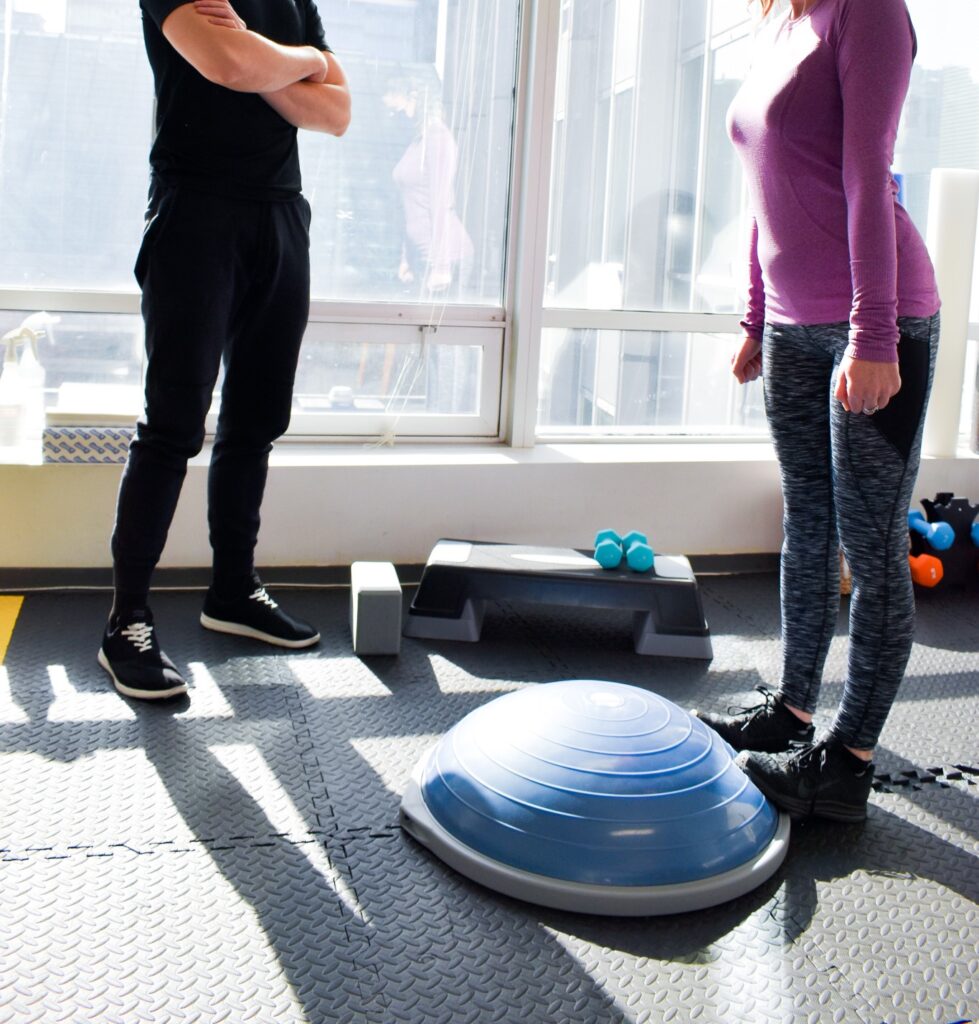
Conclusion: Recover from Runner’s Knee and Get Back to Running
At Vancouver Physiotherapy Hub, we know how frustrating it can be to deal with injuries like Runner’s Knee, especially when you’re passionate about running in this beautiful city. Our team of experienced physiotherapists in downtown Vancouver is here to help you recover quickly and effectively. With our comprehensive approach—combining manual therapy, strength training, and biomechanics correction—you’ll be back to enjoying Vancouver’s stunning running routes in no time.
If you’re experiencing knee pain or think you might have Runner’s Knee, don’t wait. Book an appointment with us today and let our expert team guide you through your recovery!

